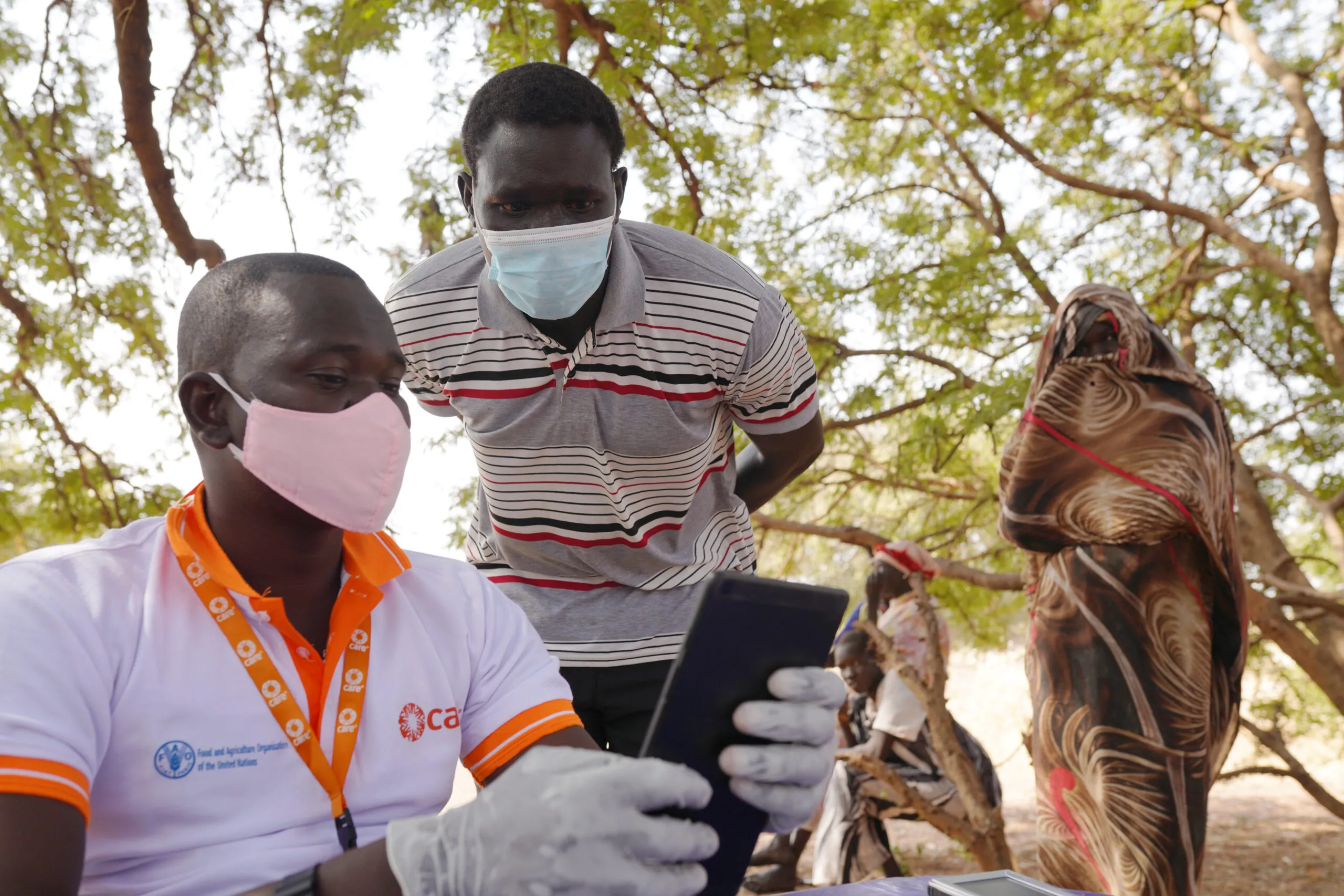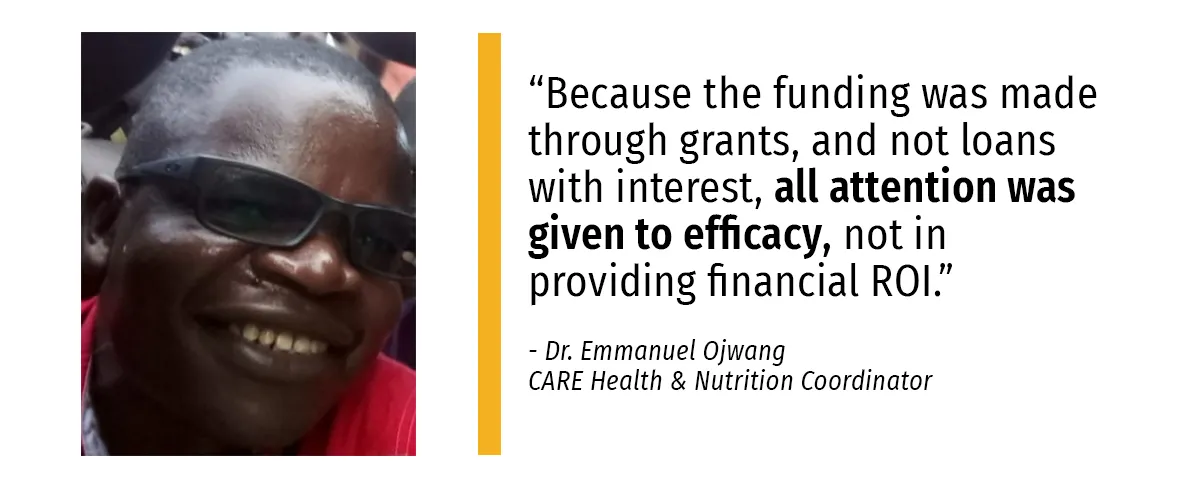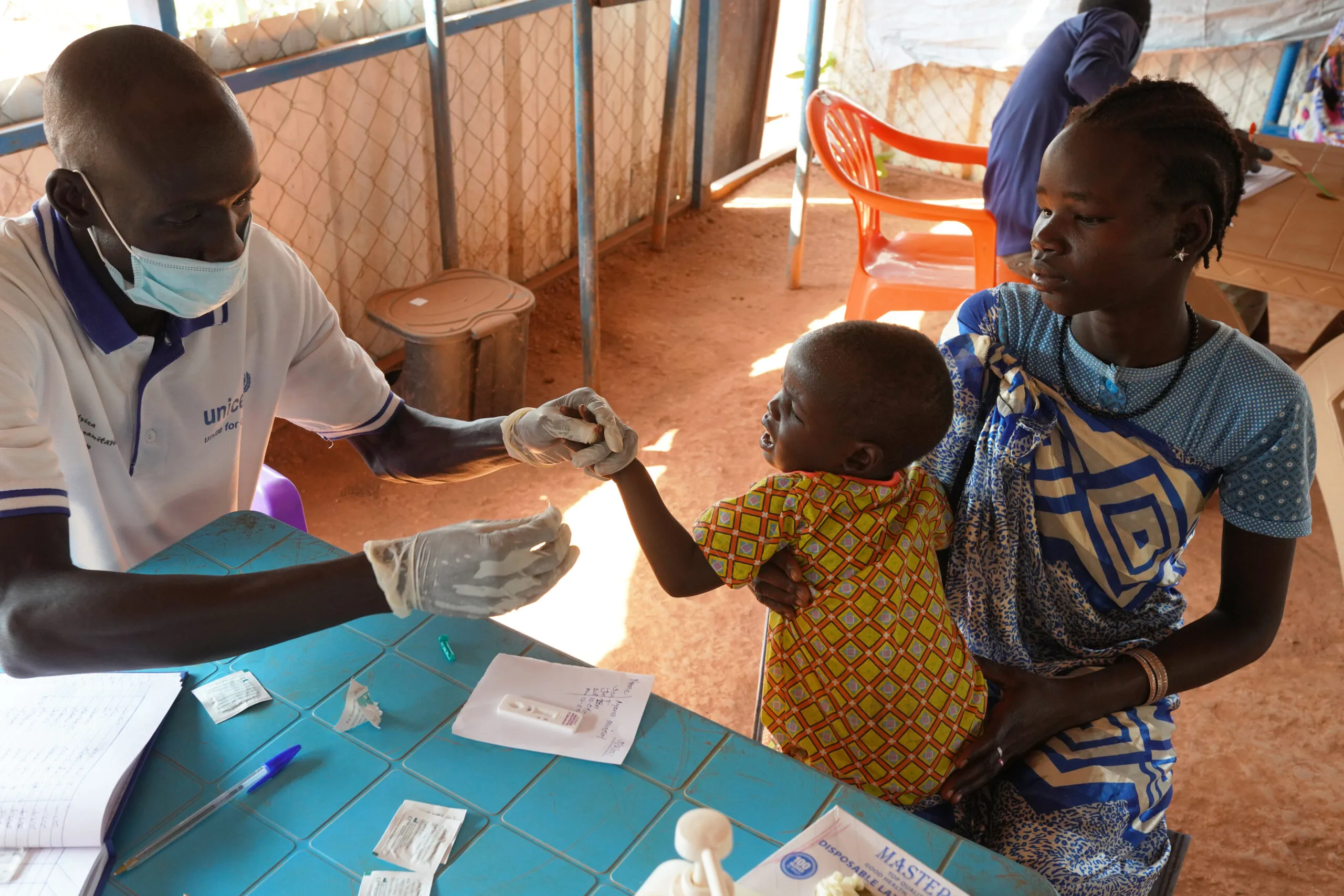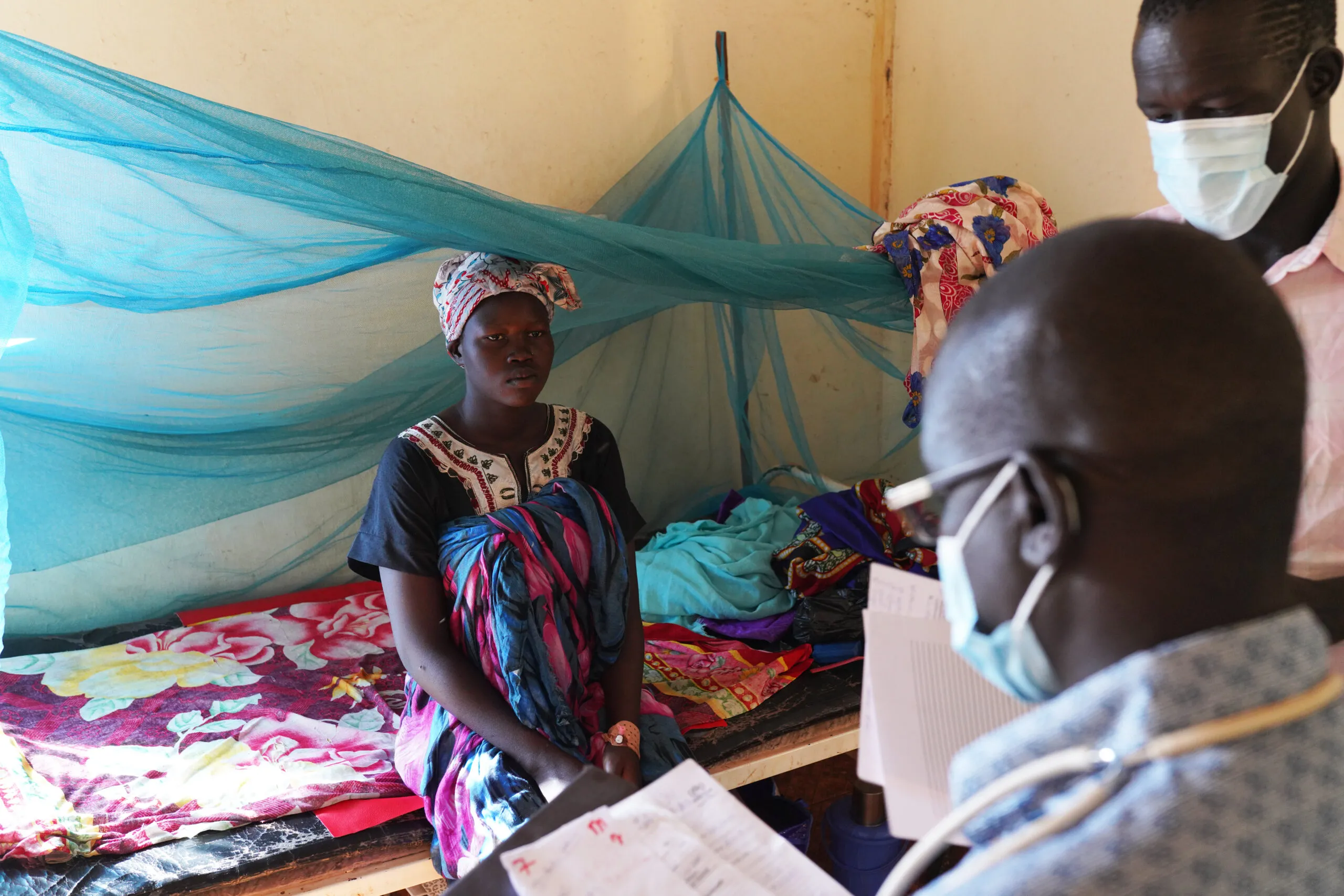The richest and most well-resourced nations in the world are under intense scrutiny for bungling their domestic COVID-19 vaccine rollouts. So, when COVAX, the coordinated global effort to distribute COVID vaccines, donated 132,000 doses to South Sudan — a low-income country in its infancy without a fully-funded health care system and currently facing violent conflict, pockets of famine, biblical flooding, and economic distress — it was no surprise that the 10-year-old nation had to return every one of those precious doses. The logistics did not exist to get the doses from the capital city Juba into the arms of the South Sudanese people across the country who need them most.
But the people of South Sudan refuse to be defeated. Led by community members like CARE’s Health & Nutrition Coordinator Dr. Emmanuel Ojwang and CARE’s Health and Nutrition Manager Dr. Kawa Tong, South Sudan solicited investments in the South Sudanese healthcare system after those 132,000 life-saving doses went to waste in May. They quickly secured surge funding from CARE’s Fast & Fair Campaign, South Sudan’s Health Pool Fund, UNHCR, and UNICEF, and were able to change the story by the time the next round of doses arrived in July.




